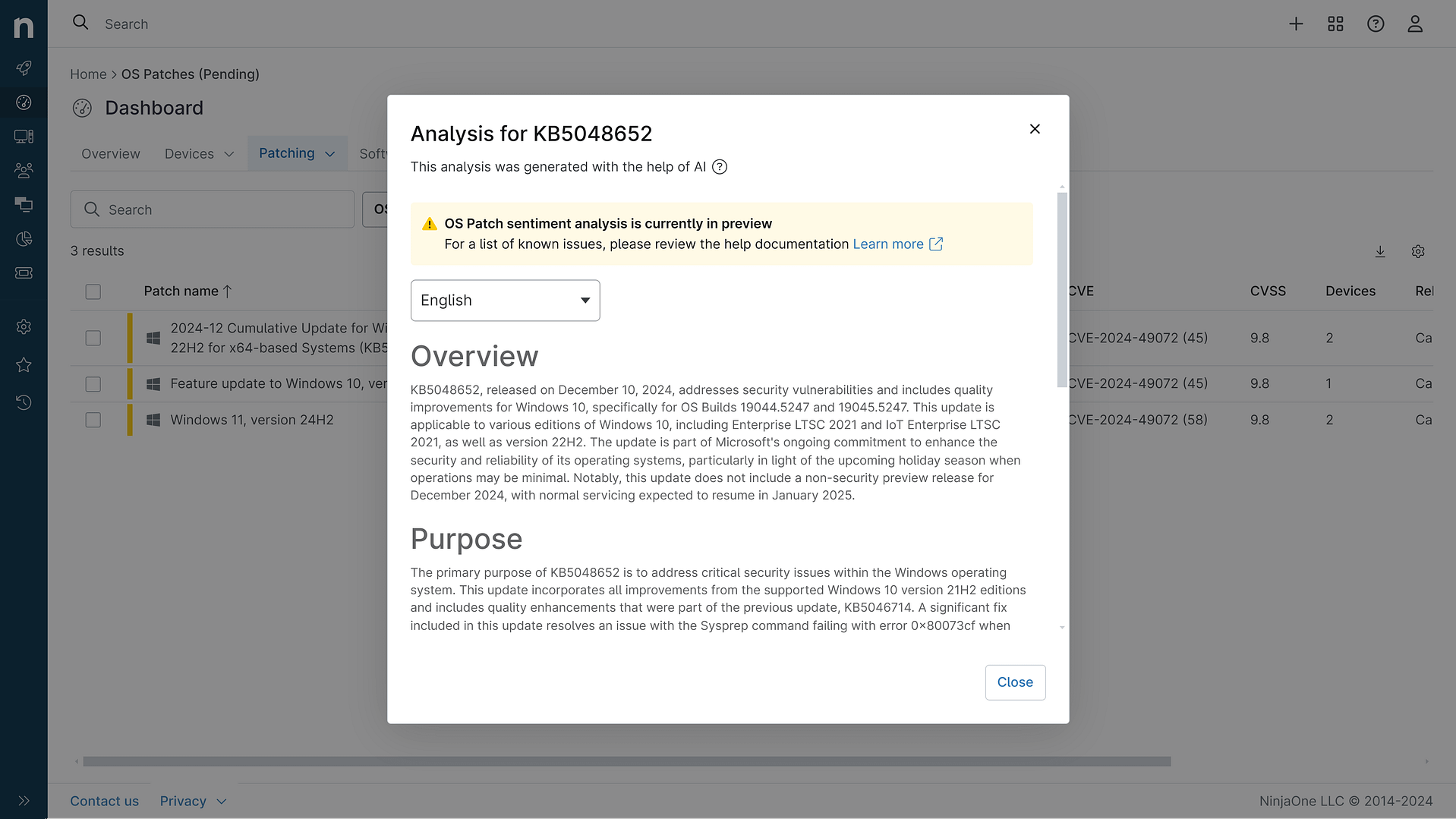KB5041018: Overview with user sentiment and feedback
Last Updated December 21, 2024
Probability of successful installation and continued operation of the machine
Overview
The KB5041018 update, released on July 9, 2024, is a cumulative update for the .NET Framework versions 3.5, 4.8, and 4.8.1 specifically for Windows 10 Version 21H2. This update addresses a critical security vulnerability identified as CVE-2024-38081, which could allow for remote code execution. Alongside security improvements, the update also includes various quality and reliability enhancements aimed at improving the overall performance of the .NET Framework on supported systems. The update is designed to be automatically downloaded and installed via Windows Update, ensuring that users receive the latest security and performance improvements without manual intervention.
General Purpose
The primary purpose of KB5041018 is to enhance the security of the .NET Framework by addressing a significant elevation of privilege vulnerability. This vulnerability could potentially allow attackers to execute arbitrary code on affected systems. The update modifies the behavior of the System.IO.Path.GetTempPath method, which is crucial for applications that rely on temporary file paths. This change is intended to mitigate the identified security risk while also improving the reliability of the framework. Users are encouraged to install this update to protect their systems from potential exploits and to benefit from the overall enhancements provided.
General Sentiment
The general sentiment surrounding KB5041018 appears to be cautious but acknowledges the necessity of the update. While the security improvements are welcomed, the changes to the GetTempPath method have raised concerns among developers and IT professionals regarding compatibility with existing applications. Some users have expressed frustration over the breaking changes introduced, which may require code adjustments in their applications. However, the importance of addressing the security vulnerability has led many to support the installation of this update despite the potential for initial disruptions.
Known Issues
- The update introduces breaking changes to the System.IO.Path.GetTempPath method, which may affect applications relying on this method for temporary file paths.
- The GetTempPath2 Win32 API may not be available on all Windows versions, leading to inconsistencies in behavior between SYSTEM and non-SYSTEM processes.
- Users may need to implement workarounds to adapt to the new behavior, which could involve setting environment variables or modifying application code.
Disclaimer: We take measures to ensure that AI-generated content is of the highest possible quality, but we cannot guarantee its accuracy and recommend that users do their own independent research. Generated on 2024-12-21 10:41 PM
